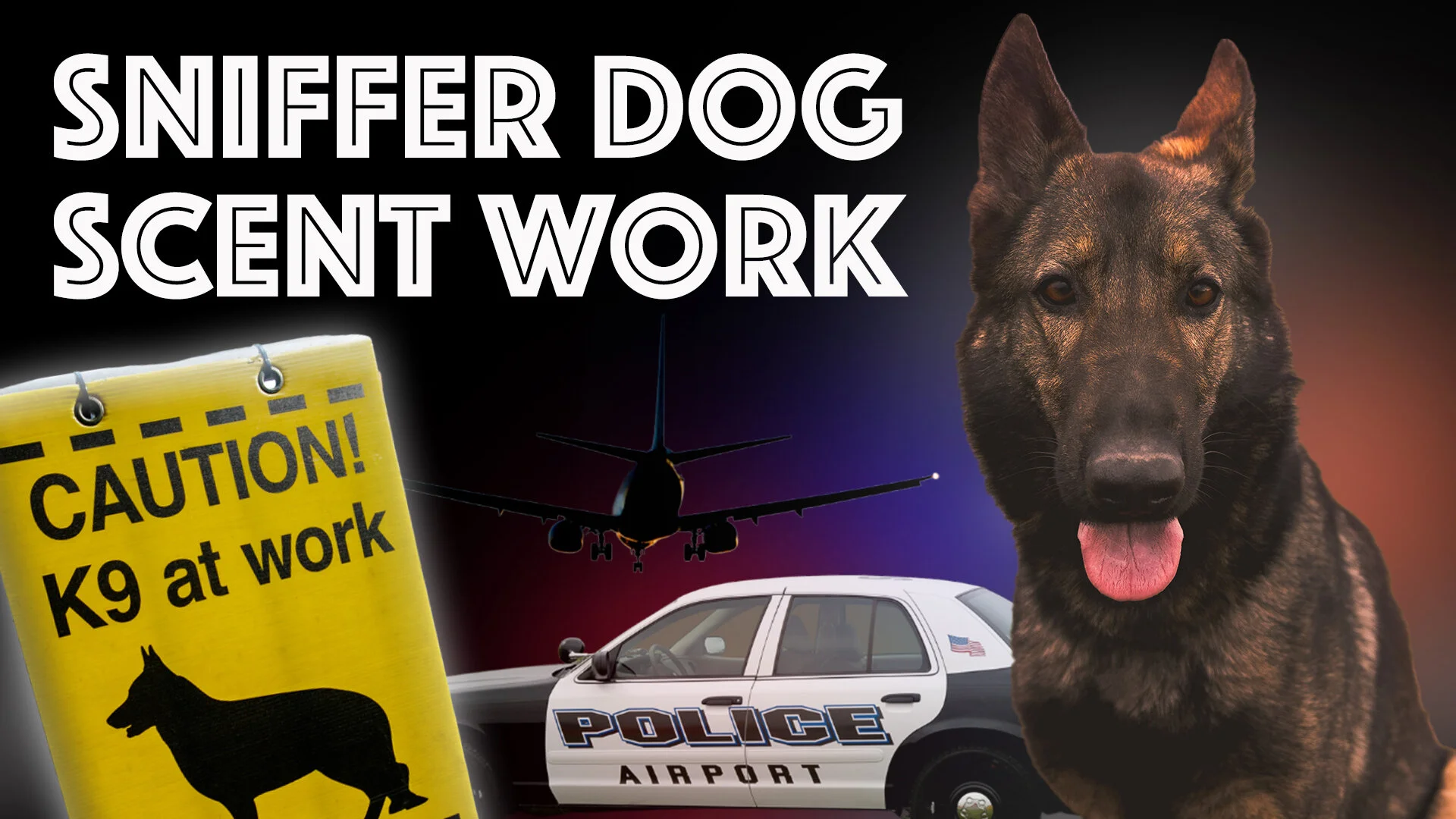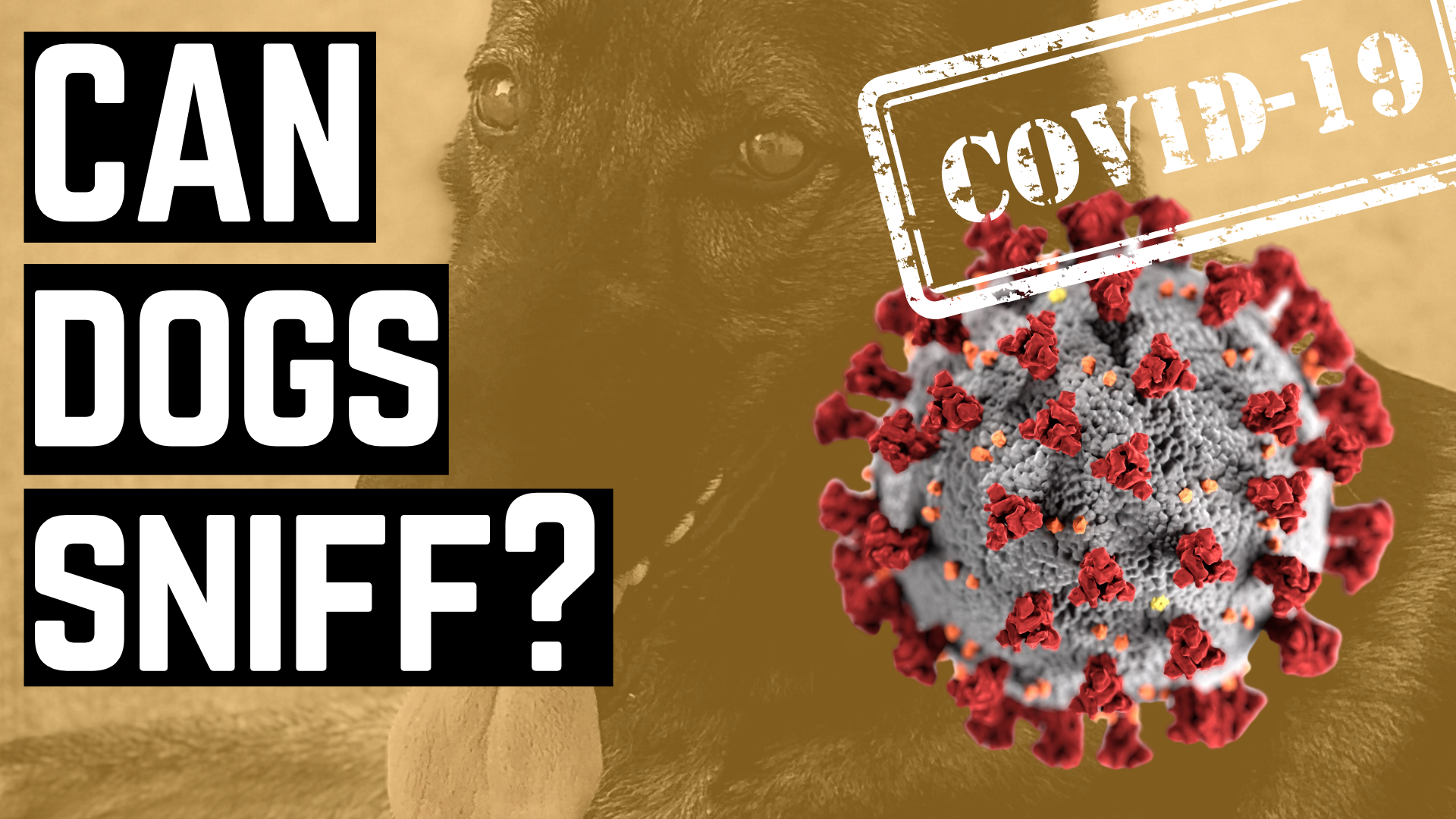K9 scent detection work and its role in the UPenn and French-Lebanese dog olfactive detection studies
HIT PLAY OR READ THE POST BELOW:
I was so excited to hear about the current research concerning the possibility of introducing dog olfactive detection as a rapid, reliable and cheap “tool” to either pre-test willing people or be a fast checking option in certain circumstances for potential SARS-CoV-2 contaminated persons.
Recently, the University of Pennsylvania announced a COVID-19 canine surveillance initiative where Dr. Cynthia Otto of the Penn School of Veterinary Medicine will lead a multidisciplinary study to see if scent detection dogs can tell the difference between COVID-19 positive and negative patients.
This pioneering scent work study could yield positive results and benefit for us in the future.
With all the promising news of the studies in K9 scent work, I want to review an explanation of the proposed research, material and methods, as well as potential working dog contributions to the medical field.
While not always given the spotlight they deserve, K9s are often on the cutting edge of medicine. They could be working in a research lab right now or going about their daily routine, which often involves saving someone’s life in some form or capacity.
They have been used in many respects to help detect things such as ovarian cancer from as little as one drop of plasma, glucose levels for patients with diabetes or even helping to detect some super bugs that are very resistant to antibiotics before they have a chance to spread to vulnerable populations.
Truly, our dogs are one of many everyday heroes.
UPenn Study
I want to cover the UPenn Study which seeks to explore the viability of scent detection dogs as a force multiplier against COVID-19. The potential results of this case study would be particularly beneficial among asymptomatic patients, or places where testing can be extremely challenging.
So How Will the Study Go…
I will leave some links at the end of the post if you want to check out the full articles on this study but the gists of the methodology goes something like this:
Eight very special dogs will be chosen to provide a precise detection skill. They will be given three weeks for the dog odor imprinting stage where they will be exposed to COVID-19 saliva and urine samples in a laboratory environment. Once they are able to discriminate positive and negative samples in the lab, the study will then move on to see if the dogs can determine or identify COVID-19 in infected people.
Contributions to the Field
If these dogs are capable of detecting COVID-19 in humans, that’s pretty impactful.
“Scent detection dogs can accurately detect low concentrations of volatile organic compounds, otherwise known as VOCs, associated with various other diseases….These VOCs are present in human blood, saliva, urine, or breath…the potential impact of these dogs and their capacity to detect COVID-19 could be substantial...[and] harness the dog’s extraordinary ability to support the nation’s COVID-19 surveillance systems, with the goal to reduce community spread.”
- Dr. Cynthia Otto, professor of Working Dogs Sciences and Sports medicine and director of Penn Vet’s Working Dog Center
Reading about what Dr. Otto had to say about this research, as well as all the other studies that I have read or heard, has brought up some useful insights that I have drawn from previous readings and I want to share with you in this post.
For instance, there’s an author I really love by the name of Maria Goodavage. In her book, “Doctor Dogs: How Our Best Friends are becoming Our Best Medicine,” she highlights a vast array of special tasks that dogs perform - from the lab to the bedside.
Goodavage discusses how dogs’ olfactory capacity -or their ability to sniff in parts per trillion - primes them to detect disease, and how their observing our behaviors can guide humans physically and emotionally.
This phenomenon in the realm of our current situation would be a complete game changer.
Way Ahead for UPenn COVID-19 Proof of Concept
As the way forward, the preliminary screening of live humans by trained dogs could begin as early as July 2020 and Penn Vet is a key part of the biomedical community making significant strides to combat the public health emergency.
So, could dogs be trained to sniff out COVID-19 in humans? It seems very plausible, but only time will tell as some very smart folks leverage the unique and collective expertise of pathogen-related research, infectious disease and translational medicine to fight this pandemic.
Alternate Research Approach for K9 COVID-19 Scent Detection
Even more recently there have been some early signs of hope with reference to a COVID-19 scent work study that has been testing whether 20 Belgian malinois dogs can be trained to detect COVID-19 in humans.
Unlike the UPenn Study, Dr. Riad Sarkis, a Lebanese digestive tract surgeon at the French Saint Joseph University in Beirut, is working on the study with experts from the National Veterinary School of Alfort in France and using the sweat from infected individuals, which gives off a distinctive odor. These dogs almost always identify the correct smell.
The results have been 95 percent positive, with few errors. The chief veterinarian in partnership with Dr. Sarkis, Dominique Grandjean, plans to publish the results of their study in a scientific journal soon so be on the lookout for that.
The detection of illnesses through the changes they cause in the body’s aroma is a really noninvasive manner that has historically been used to detect other illnesses.
“I think all illnesses are linked to genes. “We have about 150,000 genes, so any mutation modifies the genetic molecule — the protein — and so each mutation in a body results in an alteration in the smell. That is why it is easy for dogs to learn to identify the different smells.”
-Dr. Riad Sarkis, digestive tract surgeon at the French Saint Joseph University in Beirut
My Thoughts on this Research
However they make the K9 scent detection work, I could potentially see TSA or its equivalents having travelers put a gauze under their arms and then removing it and presenting it to the trained dogs.
These trained dogs could potentially give an immediate indication whether the gauze is positive or negative (for coronavirus)” without exposing the dogs to the risk of contamination. Unlike saliva or urine samples, sweat does not present a risk of contamination.
These studies still need to provide the sensibility and specificity of the dog’s diagnostic, but it is fascinating in the least.
Real Talk
Across the world, the whole of society is working to find solutions to the COVID-19 pandemic. I understand many people may be directly or indirectly affected by the spread of this virus. There is no better time to work across all disciplines to harness every capability to slow the spread and accelerate the return of our daily lives. We are in this together. Stay safe out there.
References
If you’re interested in looking up these studies, the UPenn website and the proof-of-concept study are probably the best places to start, unless their final products have been published.
Can dogs be trained to sniff out COVID-19 in patients? - ABC News. (2020). Retrieved June 28, 2020, from https://abcnews.go.com/GMA/News/dogs-trained-sniff-covid-19-patients/story?id=70449020
Dogs can detect Covid-19 by sniffing armpits, study claims. (2020). Retrieved June 28, 2020, from https://www.telegraph.co.uk/news/2020/06/07/dogs-can-detect-covid-19-sniffing-patients-armpits-study-claims/
Grandjean, D., Sarkis, R., Tourtier, J.-P., Julien-Lecocq, C., Benard, A., Roger, V., Levesque, E., Bernes-Luciani, E., Maestracci, B., Morvan, P., Gully, E., Berceau-Falancourt, D., Pesce, J.-L., Lecomte, B., Haufstater, P., Herin, G., Cabrera, J., Muzzin, Q., Gallet, C., … Desquilbet, L. (2020). Detection dogs as a help in the detection of COVID-19 Can the dog alert on COVID-19 positive persons by sniffing axillary sweat samples? Proof-of-concept study. BioRxiv, 2020.06.03.132134. https://doi.org/10.1101/2020.06.03.132134
Penn Vet | Article. (2020). Retrieved June 28, 2020, from https://www.vet.upenn.edu/about/press-room/press-releases/article/penn-vet-launches-covid-19-canine-scent-detection-study
Pennsylvania, U. of. (2020, May 12). COVID-19 Canine Scent Detection Study. ScienceBlog.Com. https://scienceblog.com/516296/covid-19-canine-scent-detection-study/
Sweet smell of success: The French dogs that can detect the coronavirus | Arab News. (2020). Retrieved June 28, 2020, from https://www.arabnews.com/node/1687231/world
Disclaimer. All opinions and views expressed at this time are my own and do not represent the opinions of any entity whatsoever with which I have been, am now, or will be affiliated. In consideration for Dingle Days supplying the data from which this video was compiled, the viewer and/or subscriber acknowledges that to the fullest extent permitted by the law, Dingle Days accepts no responsibility for the provision and accuracy of this information or the use made of this information by the viewer/reader, whether or not arising from the negligence of Dingle Days. Dingle Days shall not be liable for any direct, indirect, or consequential loss or damage resulting from any such irregularity, inaccuracy, or use of information. While I have made every attempt to ensure that the information contained in this blog/video has been obtained from reliable sources, Dingle Days is not responsible for any errors or omissions or the results obtained from this information. All information in this video is provided “as is”, with no guarantee of completeness, accuracy, timeliness or the results obtained from this information.
Hi, I’m Geryah! I am a dog lover and enthusiast whose life is enriched every day by the company of my furry friend. I started training dogs in 2017, when I decided to make my passion a reality. I film, edit, and post training and pet photography videos with my GSD, Disney on my YouTube Channel: Dingle Days. My mission is to train dogs and teach people to enable pets to best share in our lives.











Geryah interviews Dianna Santos of cyberscentwork.com on how to get started with cyber scent work with any dog.